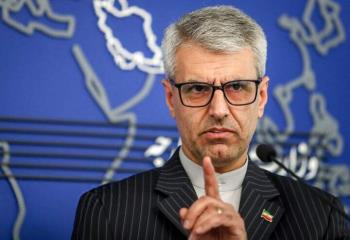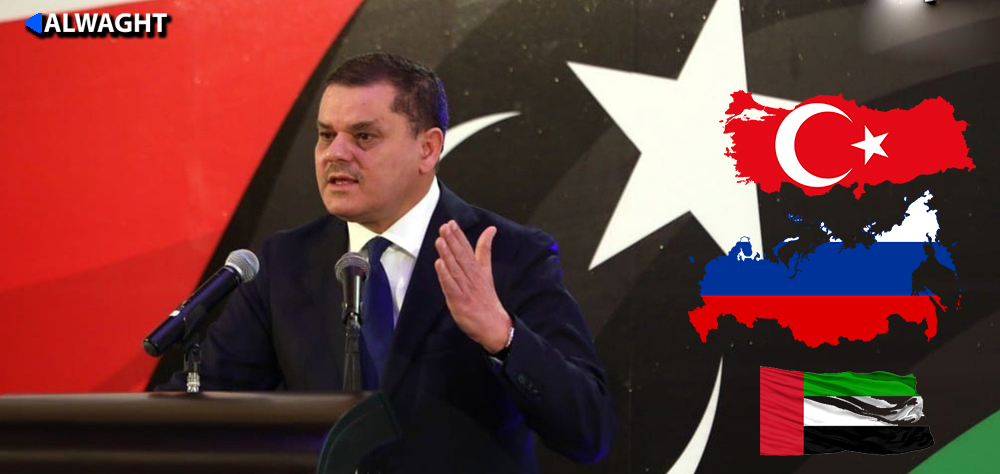Alwaght- Formation of national unity government in Libya in March as a triumph in the course of the international efforts to end the civil war in the oil-rich North African country caught wide-ranging welcome by home and foreign sides. But now and only a few months after start of the new government, which is tasked with preparing the ground for December general elections, division begins to reappear among the parties present in the coalition government, and this along with the many unsolved internal problems pushes in uncertainty the fate of the government of Prime Minister Abdul Hamid Dbeibeh.
Foreign military presence
One of the factors making the Libyan war lasting since 2011 has been the presence of regional and international foreign powers in Libya and competition between them to expand their foothold and influence developments in the country for their economic, geopolitical and ideological interests. The agreement of the main warring parties on a ceasefire, the formation of a coalition government, and arrangement of general elections have not helped reduce foreign interference, and even behind-the-scenes rivalry by the foreign parties to align the new government with their demands push the unity government to a premature division.
According to the Egyptian daily Al-Nahar, there are signs of disagreement between PM Dbeibeh and the Supreme Council of the Government of National Accord (SCGNA), headed by Khalid al-Mishri, due to their conflicting stances on the presence of Turkish troops on the Libyan soil.
After visit to Italy of Foreign Minister Najla Mangoush on Thursday and his insistence on the foreign forces exit from the country, the SCGNA reacted to his comments with a statement.
Khalid al-Mishri, who is a figure close to Turkey, made comments on a 2019 military and maritime pact between Turkey and Libya, saying that Libya was committed to the agreements signed with Turkey and other countries.
“We once again express our commitment to the terms of all agreements made in the past with other countries by the Libyan government.”
It is noteworthy that the SCGNA was formed in 2015 and acted as an advisory institution with the power to enact laws and verify agreements for the Tripoli-based Government of National Accord.
This political confrontation clearly reveals the contradiction between the ostensible support of foreign governments for the national unity cabinet and the fact that they continue to support their allies inside Libya. According to the ceasefire agreement of October 23, 2020, all foreign troops had to leave Libya within three months. Now six months after the agreement, the exit demand did not materialize. Russia and Turkey which support the opposite sides in Libya did not withdraw their forces. The Turkish military continues flights to Al-Watiya airbase in western Libya and Ankara officials argue that the ceasefire agreement does not affect their military presence.
Khalifa Haftar is also worried about exit of the Russian mercenaries and other proxy forces who back him. Haftar led the 2019 push to seize the capital Tripoli from the GNA. He is afraid that the Russian withdrawal threatens his influence in southern and central Libya and can even lead to his power structure collapse. Therefore, the reinforcements in central Libya continue by the Russian Wagner military mercenary company continues. Egypt and the UAE are worried that retreat of mercenaries can lead to sudden obliteration of Haftar power and flare-up of the clashes in eastern Libya. Abu Dhabi continues arm and financial support to Syrian, Sudanese, and Russian forces fighting along Haftar.
All these mean that there is no room for development in persuading the foreign forces to leave Libya.
Armed groups not joining the political process
Also, despite the agreement to give command of the military to the Presidential Council, internal armed groups that have fought each other have remained affiliated with circles opposing formation of a joint military command and, unconfident of the continuation of the political process, kept hosting foreign mercenaries.
Pushing the rival forces towards a unified command is a job given to joint military commission with a 5+5 structure. But so far this commission’s work was limited to watching the ceasefire. Actually, the commission is devoid of the political weight qualifying it to discuss unifying the army. Five military commanders representing Tripoli lack trust among the armed groups that account for a majority of the west Libyan forces.
Overall, it seems unlikely that Dbeibeh’s government will be able to take effective steps to unify command structures, tighten control over armed groups, or disband militias. To be precise, the armed actors are not sufficiently integrated into the political process.
Even beyond the problem of the Turkish and foreign mercenary presence, the conflict of interests of the foreign forces will, in fact, strengthen the centrifugal forces in the coalition government. The foreign actors try to embed in the government their close figures and allies because the possibility of a healthy election, and even the very holding of it in December, is weak and an agreement on continuation of Dbeibeh government’s work is likely.



























